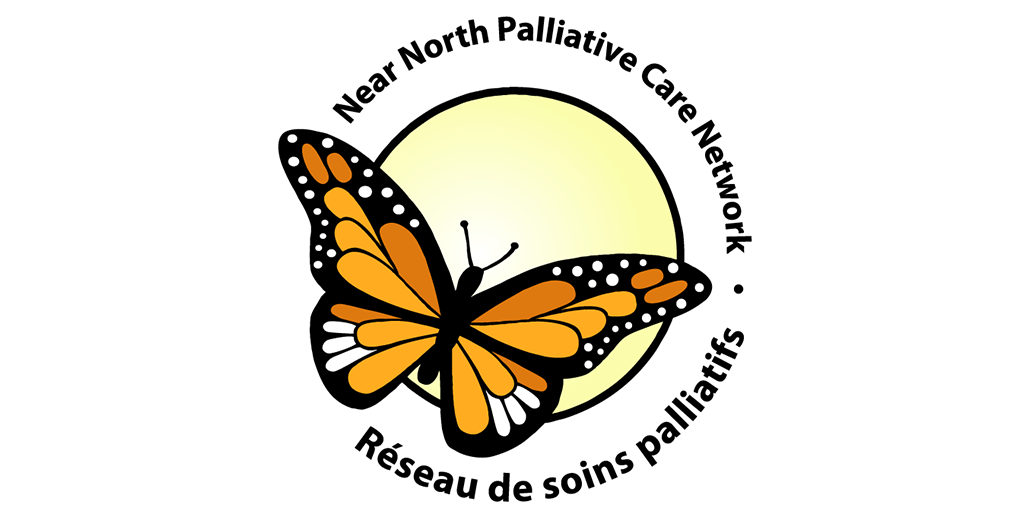Cancer Community Nippising
Hope for the Best, Plan for the Rest
Summary
While many cancers and serious illnesses can be successfully treated, not all outcomes lead to a return to meaningful quality of life. Sometimes, even when treatment is available, the burden of that journey may outweigh the benefit for some individuals.
That’s why end-of-life planning is important—and ideally, it should happen before a crisis occurs. Making these decisions early allows for thoughtful, less emotionally charged conversations. Realistically, most people wait until the need is more obvious. Still, this is something
everyone—not just those with a life-limiting illness—should consider and prepare for.
Advance Care Planning
Non-Medical Advance Planning
Non-medical planning focuses on the practical aspects of preparing for the end of life. While there’s no single person or place to manage this entirely, if you know someone in the region who helps people navigate this, please let us know.
Some key tasks to consider:
- Giving someone a spare house key
- Recording passwords for important accounts (email, banking, etc.)
- Listing bank accounts, investments, safety deposit boxes
- Organizing personal finances
- Writing or updating a
will
- Assigning a
Power of Attorney (POA) for finances and health care
- Making
funeral arrangements
- Writing letters or personal messages to loved ones
Medical Advance Care Planning
Goals of Care:
Talking with your loved ones and potential decision-makers about your values and medical wishes is a vital part of medical planning. This is often called Goals of Care planning. Consider:
- What matters most to you in life?
- What outcomes would or wouldn’t be acceptable to you?
- What kind of medical treatments do you (or don’t you) want?
- What does quality of life mean to you?
Having these conversations in advance helps reduce uncertainty and stress for your family. It also ensures that your substitute decision maker (SDM) can represent your wishes accurately and confidently.
Substitute Decision Makers (SDM)
If you're ever too unwell to speak for yourself, a substitute decision maker will be asked to make medical decisions on your behalf. Ideally, you’ve already discussed your wishes with them, so they can share what you would have wanted—not just what they think is best.
If you have a
Power of Attorney for Personal Care, that person becomes your SDM. If not, Ontario has a legal hierarchy based on your closest relationships (spouse, parent, child, etc.).
Power of Attorney for Medical Care (POA)
A
Power of Attorney for Personal Care is a legal document that lets you name someone you trust to make health care decisions if you're unable to. This person can’t speak on your behalf unless you’re incapable of doing so yourself. Assigning a POA ensures someone familiar with your values can make decisions aligned with your wishes.
Where to Find Help and Information
Near North Palliative Care Network (NNPCN)
 Learn More at nnpcn.com
Learn More at nnpcn.comA registered charity offering free, volunteer-based support for palliative care, grief, bereavement, and end-of-life planning in Northern Ontario. Services are open to patients, caregivers, and families.
Cacncer Care Ontario - Goals of Care Toolkit
View the ToolkitGoals of Care discussions help a person living with a life-limiting illness understand the serious nature of their illness. If the person is incapable, the discussions are with their substitute decision-maker. Goals of Care discussions also help healthcare providers to understand the patient’s values and goals for their care.
This toolkit was developed specifically for oncology settings. It is for providers across multidisciplinary healthcare teams and all aspects of cancer care.
Planning ahead doesn’t mean giving up—it means ensuring that your voice, values, and choices guide your care and your legacy.
Palliative Care
Palliative and supportive care is a medical specialty that supports people living with serious illness—whether cancer-related or not. It focuses on relieving symptoms, easing emotional stress, and improving quality of life for both patients and their families. This type of care can begin early in an illness and continue for months or even years, depending on the individual’s needs.
The goal is to help you live as well as possible for as long as possible.
Who Provides Palliative Care?
Palliative care is delivered by a team that may include:
- Family doctors and nurse practitioners
- Palliative care physicians
- Nurses and personal support workers (PSWs)
- Pharmacists, physiotherapists, occupational and respiratory therapists
- Dieticians, social workers, speech pathologists, and chaplains
- Trained volunteers
- Ontario Health atHome Care Coordinators
Not all team members are needed in every case. Care is tailored to your needs.
Where is Palliative Care Provided?
Palliative care can be received in various settings across the Nipissing District:
- At Home
- North Bay Regional Health Centre (NBRHC)
- Nipissing Serenity Hospice
- West Nipissing General Hospital (1 palliative suite)
- Mattawa Hospital (1 palliative suite)
- Temiskaming Hospital (1 palliative suite)
How to Access Palliative Care
A referral from a healthcare provider is required. This can come from:
- Your family doctor or nurse practitioner
- A home care coordinator
- A specialist involved in your care
Referrals in North Bay:
North Bay has an Outpatient Palliative Care Service. Referral forms are available online:
Emotional & Practical Supports
Near North Palliative Care Network (NNPCN)
 Learn More at nnpcn.com
Learn More at nnpcn.comA local charity offering free, volunteer-based services for palliative patients and their families:
- Emotional and grief support
- Letter writing, music therapy, and companionship
- Support for children and caregivers
- Community education and training
- Lending library and equipment loan cupboard
Staying at Home: Supports and Services
Many people prefer to remain at home, even during the final stages of life. Doing so often requires extra support.
Ontario Health atHome
 Learn More at ontariohealthathome.ca
Learn More at ontariohealthathome.caThis publicly funded service helps arrange:
- Nursing and personal care
- Housekeeping and home support
- Access to private services if needed
North East Health Line
 Visit northeasthealthline.ca
Visit northeasthealthline.caThis online directory offers a searchable list of public and private homecare options.
Northern Care Connect
 Visit northerncareconnect.ca
Visit northerncareconnect.caNorthern Care Connect helps connect communities in Northeastern Ontario with over 50 trusted organizations providing home and community care services and programs. Using their search tool, you will be able to find resources and services available for home care services, palliative programs, caregiver respite, among many other options.
Private Home Care and Respite
For additional help beyond what is publicly funded:
- Ask your Ontario Health atHome case coordinator
- Search northeasthealthline.ca or online directly
Short-term respite care is sometimes available at local nursing homes for caregivers who need a break.
Hospice and Inpatient Options
Nipissing Serenity House
 Visit nipissingserenityhospice.ca
Visit nipissingserenityhospice.caFor patients in their final 3 months of life who prefer not to die at home. Cost is covered by donations and provincial funding. Care is provided in a home-like setting and can be managed by your own physician or hospice staff.
Hospital Palliative Suites
North Bay and surrounding hospitals have limited palliative beds for patients who are already hospitalized and cannot return home. These are not available by direct community request.
Additional Resources
Canadian Virtual Hospice
 Visit virtualhospice.ca
Visit virtualhospice.caA helpful national website with information and videos for patients and families.
This stage of life can bring emotional and physical challenges—but no one has to face it alone. With early planning and the right support, palliative care can provide dignity, comfort, and peace for both patients and families.
Medical Assistance in Dying (MAiD)
If you're living with a grievous (serious) and irremediable (incurable) medical condition, you may wish to explore all options for care—including palliative care, psychological or spiritual support, and Medical Assistance in Dying (MAiD).
In Canada, MAiD refers to a legal medical process in which a physician or nurse practitioner provides or administers medications that intentionally bring about a person’s death, at their voluntary and informed request, to relieve suffering.
This service became legal in 2016, and the laws around MAiD continue to evolve. For the most current information, visit:
Note: MAiD is publicly funded and available to eligible Ontario residents at no cost.
Accessing MAiD
MAiD is available in the
Nipissing District and surrounding areas.
If You are a Patient:
Talk to your doctor or nurse practitioner to begin the process.
- If they do not participate in MAiD, they are legally required to refer you to someone who does.
If you do not have a provider, you can self-refer through the provincial MAiD Care Coordination Service:
- 📞 Dial 811 and ask to be referred for a MAiD assessment
- 📞 Or call 1-866-286-4023 directly (Health 811 MAiD line)
If You are a Healthcare Provider:
There is no public directory of MAiD providers in Nipissing District.
You can:
- Use the provincial MAiD coordination system to connect your patient.
- In North Bay, use the Hospital Vocera system MAiD group message to contact local MAiD providers.
- Contact individual physicians involved in MAiD directly through their offices or Vocera.
Where MAiD Can Be Provided
MAiD can be arranged in several settings:
Home
Available in our region.
While it is neither right nor wrong to want to die at home, and is a personal choice, it can be helpful to know that there is no evidence that dying in a shared home is more difficult on those who will be grieving.
Hospitals
- North Bay Regional Health Centre (NBRHC) – Available
- West Nipissing General Hospital (Sturgeon Falls) – Available
- Temiskaming Hospital (New Liskeard) – Available
- Mattawa Hospital – Not available
Hospice
- Nipissing Serenity Hospice (North Bay) - Not available onsite, but hospital transfer can be arranged
- Hospice Huntsville - MAiD available onsite
If you're in a facility that does not support MAiD, your provider will help arrange a safe transfer to a location where it can be provided.
Eligibility for MAiD
To qualify for MAiD in Ontario, you must:
- Be 18 years of age or older
- Have a valid Ontario health card
- Be mentally capable of making healthcare decisions at both the time of request and the time of provision
- Have a grievous and irremediable medical condition
- Be making the request voluntarily, free from outside pressure
You do not have to try any specific treatments (e.g., chemotherapy) to be eligible
MAiD Process Overview
- Written Request:
- Must be signed by the patient or dictated if writing isn't possible.
- Requires
two independent witnesses (cannot benefit from the patient's estate)
- Assessment:
- A MAiD assessor reviews the request to confirm eligibility
- A second, independent assessor must also agree
- Once approved, the procedure can be scheduled (or postponed until the patient feels ready)
- Flexibility:
- Patients can change the date, postpone, or withdraw their request at any time
- Signing a request does
not mean you must proceed
Planning MAiD at Home
If MAiD is to occur at home, your MAiD provider will guide you through necessary arrangements:
- DNR (Do Not Resuscitate) form must be completed
- EDiTH ("Expected Death in the Home") form is required
- IV access:
- Some providers may arrange same-day IV placement
- Others may recommend a PICC line for reliable access
Funeral planning is also recommended in advance. If cost is a concern, funeral homes can help apply for government support. After death, the next-of-kin contacts the chosen funeral home for body transfer.
The police do not need to be contacted after an expected MAiD death at home.
Legal and Administrative Notes
- Life insurance is not affected by choosing MAiD
- MAiD is not considered suicide under the law
- The
cause of death on the death certificate will be the underlying illness (e.g., ALS, cancer)
- All MAiD deaths are reported to the
Office of the Coroner
- A follow-up phone call to the next-of-kin is typical
- No in-person investigation or autopsy is required unless otherwise indicated
If you're considering MAiD, it's important to have open, ongoing conversations with your healthcare team, your loved ones, and spiritual or emotional support systems. There is no pressure to proceed, and every step can be taken at your pace.


